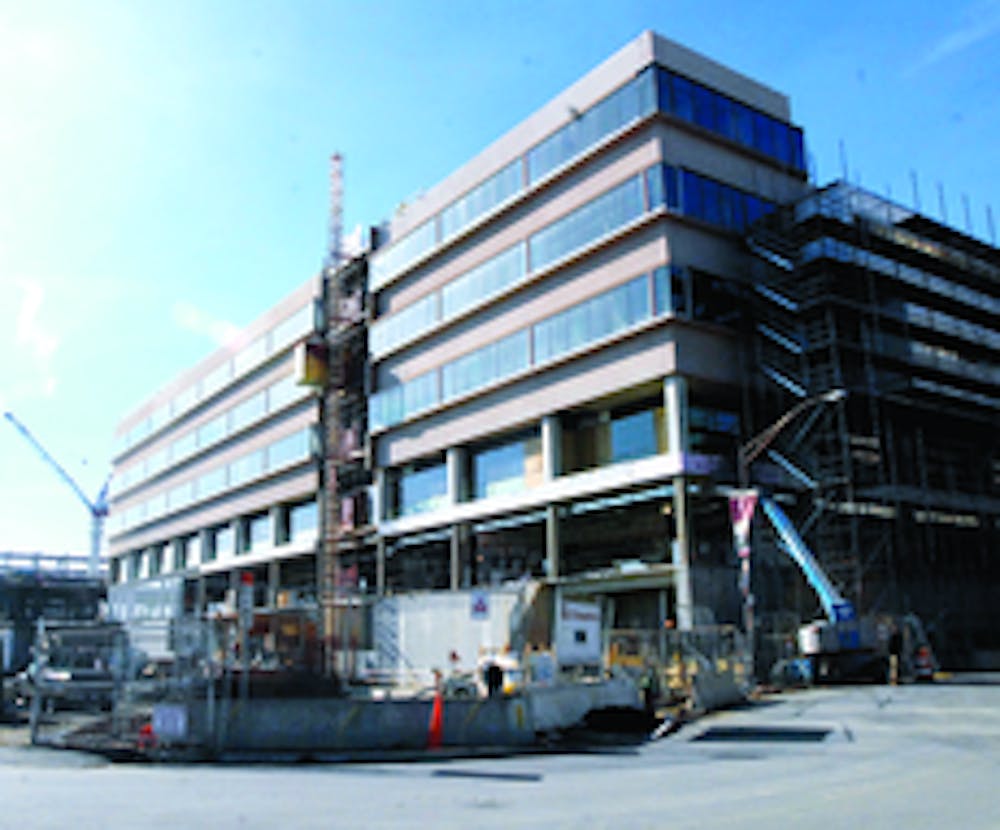At Penn Medicine, officials are thinking green, and they're not just referring to nauseated patients.
The Raymond and Ruth Perelman Center for Advanced Medicine is on schedule to open early this summer and will have certification from the U.S. Green Building Council.
The Perelman Center will begin seeing patients as early as mid-June and will be in full operation on Jan. 1, 2009.
The $232-million facility - the largest capital project in Penn Medicine's history - will be located near the Hospital of the University of Pennsylvania at 34th Street and Civic Center Blvd.
The Perelman Center will be the first building on campus to receive a Leadership in Energy and Environmental Design certification administered by the U.S. Green Building Council, according to University Architect David Hollenberg.
To get and maintain LEED certification, the Perelman Center is being constructed partly in recycled and local materials and will be designed for energy efficiency.
Energy efficiency is a must because the Perelman Center is an 800,000-plus square foot building, including underground parking, Kevin Mahoney, executive director of the Center for Advanced Medicine at Penn, wrote in an e-mail.
In addition to energy efficiency, measures will be taken to ensure high air quality in the center. Such measures include carpeting and paint that are aimed at reducing indoor air contaminants.
"Since patients' health is our primary concern, it stands to reason that the building in which they are being treated has the patient's and the planet's health as a priority," Mahoney said.
Officials also cited the Perelman Center's size and location as factors that will improve medical care.
According to Mahoney, the size of the Perelman Center will make it possible to house doctors from many specialities, improving collaboration in patient care.
The specialties housed in the Perelman Center will include cancer services, cardiovascular, diabetes, radiology and infectious disease.
Medical students will also be able to work with doctors outside their specialty. The Perelman Center will help prepare medical students because "the practice of medicine is moving toward a collaborative model," Mahoney wrote.



